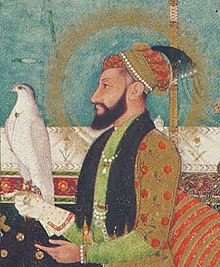The Legacy of Aurangzeb: A Mughal Emperor’s Impact

Introduction
Aurangzeb, the sixth Mughal emperor, has been a subject of extensive historical debate and controversy. His reign from 1658 to 1707 marked a significant period in Indian history, characterized by both territorial expansion and religious intolerance. Understanding Aurangzeb’s policies and the subsequent implications on the Mughal Empire and modern India is vital, as it influences contemporary discussions around history, religion, and identity.
Rise to Power
Aurangzeb ascended to the throne following a swift and strategic struggle for power against his brothers. Known for his administrative skills, he expanded the Mughal Empire to its greatest territorial extent, encompassing almost the whole Indian subcontinent. His reign brought about notable advancements in administration and military strategies, which served to consolidate his rule over vast territories.
Religious Policies and Their Impact
One of the most controversial aspects of Aurangzeb’s rule was his religious policies. Unlike his predecessors, who adopted a more liberal approach towards non-Muslims, Aurangzeb reinstated the jizya tax on Hindus and implemented a more stringent interpretation of Islamic law. This led to increased tensions between different religious communities and sparked various revolts, notably among the Sikhs and Marathas, significantly weakening the empire’s stability.
Decline of the Mughal Empire
By the end of Aurangzeb’s reign, the Mughal Empire faced numerous challenges, including financial crises, regional uprisings, and weakening central authority. The lengthy wars and the controversial religious policies alienated sizable segments of the population, leading to a fragmentation of the empire. His death in 1707 marked the beginning of the empire’s decline, which eventually paved the way for British colonial expansion in India.
Assessing Aurangzeb’s Legacy
The legacy of Aurangzeb remains polarizing among historians. Some view him as a tyrant whose policies initiated the decline of a once-great empire, while others argue that he was a ruler who faced the challenges of governance in a culturally diverse society. Recent scholarship has attempted to reevaluate his contributions beyond the lens of religious intolerance, emphasizing his role in the administrative framework of the empire.
Conclusion
Aurangzeb’s impact on Indian history is profound and enduring. As debates continue over his reign’s implications, it becomes increasingly apparent that a nuanced understanding of his policies and their effects is crucial for comprehending the complexities of India’s past. As we look to the future, reflecting on Aurangzeb’s legacy can help foster dialogue on cultural identity and religious tolerance in contemporary society.








